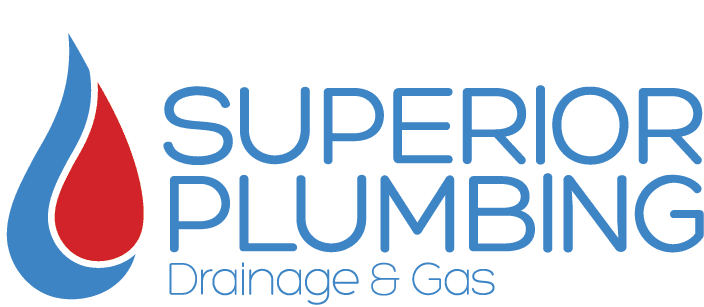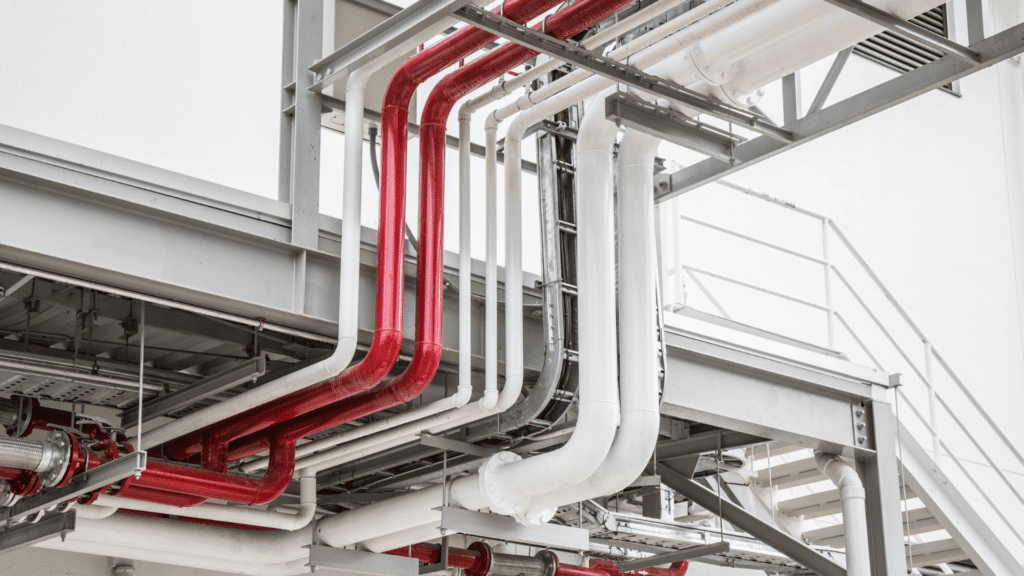Something about the architectural character of an old building continually draws people back to it. However, if you want to live and work in one, some modernisation will be required. Renovating old buildings requires careful attention to detail and expertise in various trades. One of these trades is commercial plumbing, and Superior Plumbing is here to attest to its significance.
Old Buildings Present Plumbing Challenges
From updating outdated systems to ensuring compliance with modern regulations, commercial plumbers play an indispensable role in revitalising ageing structures. Their contributions ensure that old buildings remain not only symbols of history and heritage but also vibrant and functional spaces.
Our region has a rich heritage, from the iconic colonial architecture of Fremantle to the stately elegance of Perth’s heritage precincts. Commercial plumbers face the delicate balancing act of preserving this past while embracing the future. Let’s look more closely at their contributions to preservation and the challenges they face.
The Challenges
Old buildings present several plumbing risks that can compromise the safety, integrity, and functionality of the structure. Some of these risks include:
- Corrosion: Many older buildings have plumbing systems made from materials such as galvanised steel, iron, or lead. Over time, these materials can corrode, leading to leaks, pipe degradation, and water contamination. Corrosion weakens the structural integrity of pipes, increasing the risk of pipe bursts and water damage.
- Lead Contamination: Buildings constructed before the late 20th century may have lead pipes or plumbing fixtures. Lead can leach into the water supply, especially if the water is acidic or if there are disruptions in water flow. Lead exposure can cause serious health problems.
- Pipe Blockages: Older plumbing systems are more susceptible to blockages due to factors such as mineral buildup, sediment accumulation, and deteriorating pipe materials. Blockages can lead to reduced water flow, clogged drains, and sewage backups, causing inconvenience and potential health hazards.
- Sewer Line Issues: Sewer lines in older buildings may be prone to problems such as root intrusion, cracks, and collapses. These issues can result in sewage leaks, foul odours, and contamination of the surrounding soil and groundwater. Sewer line problems can also lead to costly repairs and environmental damage if not addressed promptly.
- Inadequate Ventilation: Older buildings may have inadequate ventilation systems, which can result in sewer gas buildup within the plumbing system. Sewer gases, such as hydrogen sulfide and methane, are toxic and can pose health risks if inhaled in high concentrations. In addition to health concerns, inadequate ventilation can also contribute to foul odours and deterioration of the plumbing system.
- Outdated Fixtures and Appliances: Older buildings may still have outdated plumbing fixtures and appliances that are inefficient and prone to failure. For example, old toilets, faucets, and water heaters may waste water, increase utility bills, and require frequent repairs. Upgrading to modern, energy-efficient fixtures and appliances can improve water conservation and reduce operating costs.
- Lack of Backflow Prevention: Older buildings may lack proper backflow prevention devices, increasing the risk of contaminated water entering the plumbing system. Backflow can occur due to changes in water pressure or plumbing system malfunctions, leading to the potential introduction of harmful chemicals, bacteria, or other contaminants into the potable water supply.
- Water Main Extension: Extending water mains in old buildings poses specific plumbing risks. Connecting new pipes to existing infrastructure introduces compatibility challenges, while inadequate pressure regulation can lead to water hammer and reduced fixture performance. Sediment buildup and environmental disruption during excavation activities are additional concerns.
Commercial Plumbing Contributions
Here are some of the ways a commercial plumber’s skills and specialised knowledge contribute to updating plumbing systems in historical structures:
- Preserving and Modernising: People may love old architecture, but they’re also fond of running water. One of the primary challenges in renovating old buildings is integrating modern amenities without compromising their historical character. Commercial plumbers possess the expertise to design and implement plumbing solutions that blend seamlessly with the building’s aesthetics while meeting current standards for efficiency and safety. Whether it’s upgrading antiquated piping or installing modern fixtures, professionals ensure heritage is not sacrificed to modernisation.
- Navigating Regulatory Requirements: When renovating an old building, you have to play by the rules. Building codes and regulations evolve over time to address changing safety standards and environmental concerns. Historical buildings may be subject to preservation guidelines that dictate how renovations should be conducted. Renovating old buildings often requires navigating a complex web of regulatory requirements to ensure compliance with modern codes. Commercial plumbers bring in-depth knowledge of local building codes and regulations, ensuring that plumbing renovations meet all necessary standards.
- Customising Solutions: When it comes to plumbing renovations, one size does not fit all. Old buildings present unique challenges that require innovative solutions tailored to each project’s specific requirements. Commercial plumbers excel at devising customised solutions to address these challenges, whether it’s retrofitting existing plumbing systems, rerouting pipes to accommodate new layouts, or resolving structural issues that affect plumbing installation. Their extensive experience equips them to tackle a wide range of plumbing challenges, from addressing corrosion in old pipes to optimising water efficiency through modern technologies.
- Embracing Sustainable Practices: Just because buildings are old does not mean they have to be wasteful. Modern plumbing technologies offer opportunities to improve water efficiency, reduce energy consumption, and minimise environmental impact. Commercial plumbers integrate sustainable practices into their renovation projects by recommending and installing eco-friendly plumbing fixtures, such as energy-efficient water heaters and soakwells. By prioritising sustainability, they help old buildings reduce their ecological footprint while enhancing their overall functionality and value.
Older Buildings Require Superior Plumbers
Whether the building is a home or business, plumbing risks in old buildings require thorough inspections, proactive maintenance, and, in many cases, renovation or replacement of plumbing systems and components. Our experts at Superior Plumbing can identify and address these risks, ensuring the safety, sustainability and longevity of your property. Contact us today and benefit from our twenty years of experience!


